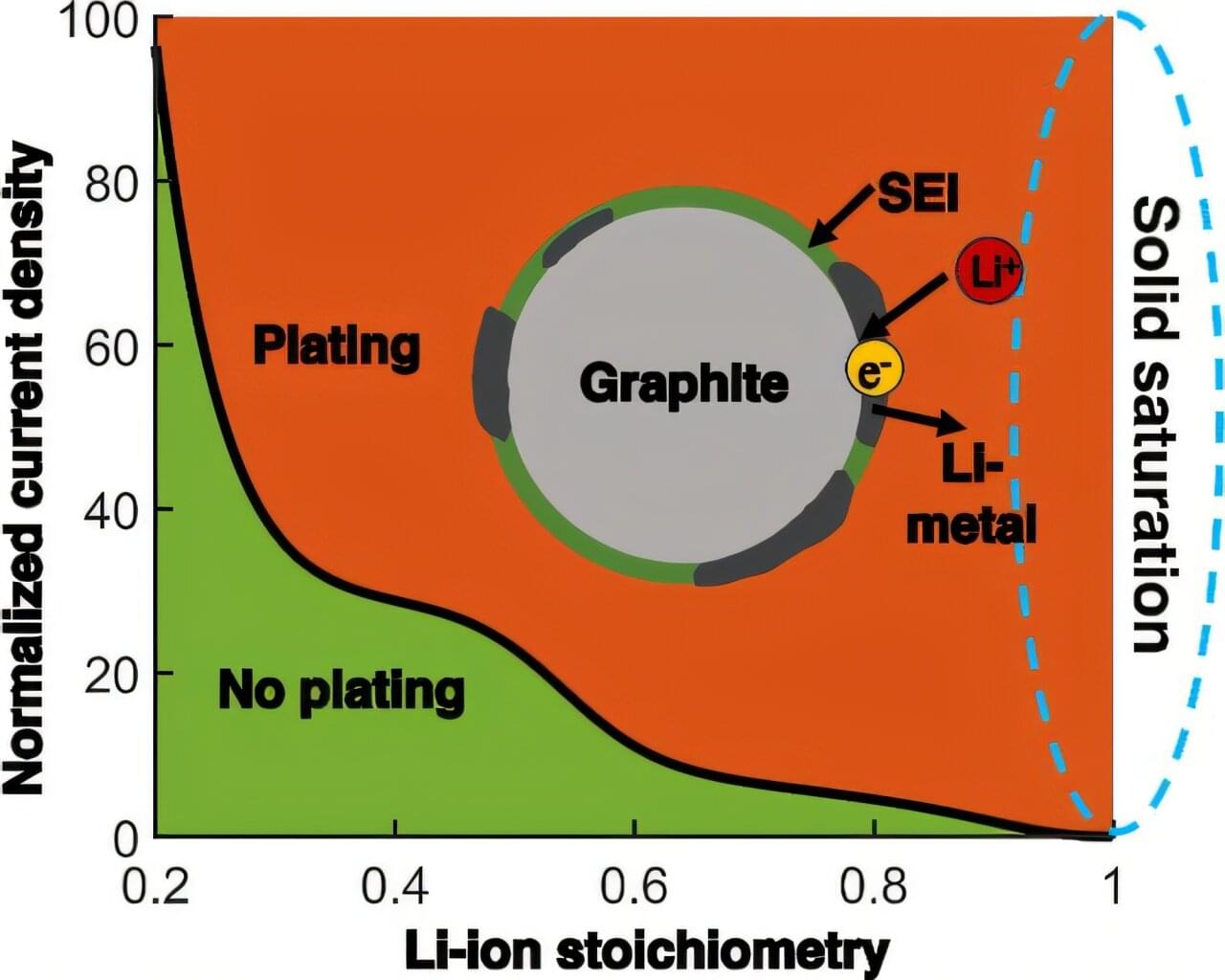Fast-charging lithium-ion batteries are ubiquitous, powering everything from cellphones and laptops to electric vehicles. They’re also notorious for overheating or catching fire.
Now, with an innovative computational model, a University of Wisconsin–Madison mechanical engineer has gained new understanding of a phenomenon that causes lithium-ion batteries to fail.
Developed by Weiyu Li, an assistant professor of mechanical engineering at UW–Madison, the model explains lithium plating, in which fast charging triggers metallic lithium to build up on the surface of a battery’s anode, causing the battery to degrade faster or catch fire.
